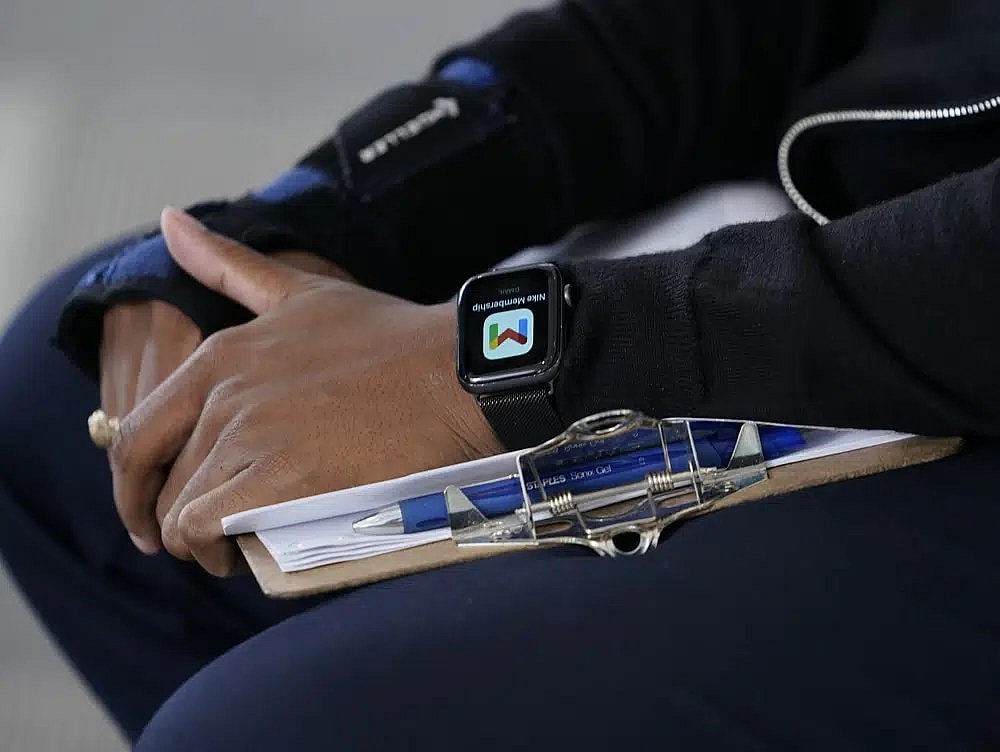WASHINGTON (AP) — More than a half million of the poorest Americans could be left without health insurance under legislation passed by House Republicans that would require people to work in exchange for health care coverage through Medicaid.
It’s one of dozens of provisions tucked into a GOP bill that would allow for an increase in the debt limit but curb government spending over the next decade. The bill is unlikely to become law, though. It is being used by House Republicans to draw Democrats to the negotiating table and avoid a debt default.
Democrats have strongly opposed the Medicaid work requirement provision, saying it won’t incentivize people to get a job and will drive up the number of uninsured in the country.

Here’s a look at how the proposal might save taxpayers money but cost some Americans access to health care coverage.
WHO WOULD BE REQUIRED TO WORK?
The work requirements say able-bodied adults ages 19 to 55 who don’t have children or other dependents would be required to work, train for a job or perform community service to stay on Medicaid. They would have to put in at least 80 hours a month to stay on the government-sponsored health care coverage.
About 84 million people are enrolled in Medicaid, and the Congressional Budget Office estimates 15 million would be subject to the requirement. The Health and Human Services Department, however, predicts millions more — about a third of enrollees altogether — would be required to work.
WHY ARE WORK REQUIREMENTS CONTROVERSIAL?
Republicans say the move would help push Americans into jobs that eventually might put them in a position to move off of government aid.
The requirements would also be more equitable for those who are working to support their families, said House Majority Leader Steve Scalise, R-La.
“That single mom that’s working two or three jobs right now to make ends meet under this tough economy, she doesn’t want to have to pay for somebody who’s sitting at home,” Scalise said.
Democrats argue that work requirements could unfairly push people out of Medicaid, too.
Some people were wrongly kicked off Medicaid in Arkansas when the state briefly introduced work requirements, Chiquita Brooks-LaSure, administrator of the Centers for Medicare and Medicaid Services, told lawmakers. In some cases, people were not required to work but didn’t fill out the required paperwork.
“It’s not just people who are subject to the requirements that often get caught up in red tape,” she said. “It can often be people who are exempted.”
About 1 in 4 people who were required to work lost coverage during Arkansas’ experience with work requirements in 2018.
Work requirements can put Medicaid enrollees in a bind. While no one has been kicked off Medicaid over the last three years because of the pandemic, that changed in April when the federal government required states to review income eligibility for all enrollees to see who now makes too much money to qualify for the health care benefits.
People who picked up work, earned a small raise or switched jobs are finding that those new incomes could soon cost them coverage.
Amy Shaw, 39, of Rochester, New Hampshire, lost her family’s Medicaid coverage in April because of her husband’s 50-cent raise to $17 per hour at an auto parts store. Shaw wouldn’t be subject to the GOP’s work requirement because she has two daughters, but the family’s case illustrates how modest incomes can push people out of Medicaid coverage — and cost them big time.
Suddenly, instead of a $3 copay, she was billed $120 for a cancer screening ordered by her doctor. Meanwhile, their rent increased by 40% since the pandemic started, and the cost of food, utilities and other essential have gone up.
“It just seems like the system is set up so that you don’t want to go back (to work) because you lose more than you gain,” Shaw said. “It makes me not want to go and get my mammogram and my colonoscopy. I don’t even want to go to these appointments because it’s going to cost so much money.”
HOW MUCH WOULD THE REPUBLICAN PROPOSAL SAVE?
That largely depends on how many people who would be required to work opt not to or don’t fill out the proper paperwork to remain covered.

The Congressional Budget Office estimates the requirements would save $109 billion over the next decade. Those savings would come in two ways: from about 600,000 people who would be dropped from Medicaid, then 900,000 who would lose federal funding for their Medicaid, but remain enrolled in the program through their state.
That analysis also says the bill would do little to improve employment among Medicaid enrollees.
WHAT’S NEXT?
The House GOP bill won’t pass a Democratic-controlled Senate or be signed into law by President Joe Biden in its current state.
But don’t expect the issue of work requirements and trimming Medicaid benefits to go away anytime soon. The number of people enrolled in Medicaid has ballooned in recent years, growing by more than 20 million since 2020.
If you ask Democrats, that’s a great thing — they’ve pointed to the record low uninsured rate that’s given more people access to medical care. Democratic-led states have also pitched new ways to expand Medicaid under the Biden administration, granting more access to recently released convicts and new mothers, for example.
Republicans, however, want to scale back safety net programs to pre-pandemic levels. And, Republicans in some states are already trying to implement work requirements of their own. Arkansas Gov. Sarah Huckabee Sanders asked the federal government to OK a proposal that would move anyone who doesn’t comply with work requirements off Medicaid’s private insurance to traditional fee-for-service Medicaid.
TheGrio is FREE on your TV via Apple TV, Amazon Fire, Roku and Android TV. Also, please download theGrio mobile apps today!

